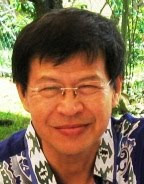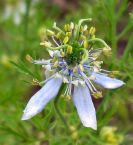
Last Friday, 13th February 09, after taking my 'wuduk' at Masjid Sahabah at Section 7 in Kota Damansara for my weekly Friday Prayer, my youngest son, Anuar asked me why I did that. He asked me not because he was ignorant of the fact that a Muslim must take his "wuduk" (cleans himself) before he starts his "solat" (prayer). He asked me because from his previous observations, I didn't take my "wuduk" at the mosque. I took it at my office before I left for the Friday prayer. I just smiled at him and told him that my earlier "wuduk" had been annulled ("batal"). It had to be retaken to ensure that I would be a "clean" person again to face the Almighty in my prayer.
Before I go further let me explain a bit what "wuduk" is all about. As defined by Wikipedia, Wudu (Arabic: الوضوء al-wuḍū', Persian:آبدست ābdast, Turkish: abdest, Urdu: وضو wazū') is the Islamic act of washing parts of the body using water. Muslims are required to be clean in preparation for ritual prayers. The Qur'an says "For Allah loves those who turn to Him constantly and He loves those who keep themselves pure and clean.". Muslims are also required to be clean when handling and reading the Qur'an. The Qur'an says "Which none shall touch but those who are clean". Wudu is often translated as "partial ablution", as opposed to ghusl, or "full ablution".
Wuduk is performed by following a certain procedure in washing one's face, hands, ears, hair and the feet. Little did Anuar knew that just about 10 minutes before I fetched him and his brother Amin from the house, my "wuduk" had been annulled by the "touching" incidence with the opposite sex at the Kota Damansara Toll Plaza exit. You see, my Touch N Go card only had 30 sen left (RM0.30) and the fact that PLUS had changed its top-up service between the period from 9.00 am to 4.00 pm had not made it easier for me to top up the card's credit. Thus, until such times that I could top up the card again, I had to enter and leave the Toll Plaza the "manual" way, that is, to collect a ticket on entry and pay for the trip on exit at the next Toll Plaza .
That day on the way into the Subang Jaya Toll Plaza, I collected the ticket but felt my hand rubbed against that of the person at the Toll Plaza. But I didn't realised whether that person was a "he" or a "she." So I said to myself that since I couldn't identify the sex of the person, my "wuduk" should still be valid. Before I reached the Kota Damansara Toll Plaza exit, I prepared the RM1.20 in advance to pay for the toll. So when I reached the Toll Plaza, I tried to hand over the RM1.20 "cleanly"; "cleanly" in the sense that her skin won't have to rub against mine, you see. But somehow she must have sensed my great effort in trying to hand over the money "cleanly" to her. Therefore, it's just natural that she reciprocated by grabbing the money instead of taking it. In the process, the money and my hand was also "grabbed" by her, thereby rendering my "wuduk" to be null and void ("batal").
Sorry, I forgot to explain earlier on that the state of cleanliness of one's "wuduk" would be annulled if one performs one of the following acts :-
1. Defecation, passing gas or urination.
2. Emission of semen.
3. Sleep.
4. Passing blood.
5. Vomiting.
6. Loss of senses.
7. Fainting
8. Touching the skin of the opposite sex (of marriageable status)
And that is why I have to take my "wuduk" again because my skin touched hers at the Toll Plaza.
This incidence kept me thinking that Highway Concessionaires should really ask their staffs at the Toll Plaza to wear a glove each. I did come across female staffs at some Toll Plazas wearing glove, but most of them did not. I had never come across a male staff wearing the glove, though. The reason why the female staff at some Toll Plazas were wearing their gloves was most likely not because she wanted to maintain the validity of her "wuduk" but more so because she didn't want her hand to be infected with germs or dirt from the motorist during the transaction.
Therefore it makes good sense for the Highway Concessionaires to encourage their Toll Plaza staffs to wear glove, not because they want to avoid annulling the motorists' "wuduk", but more so due to health; because if a Toll Plaza staff contracts a disease during the transaction with an infected motorists, the particular staff has to go on medical leave, and therefore her employer will incur losses in terms of working hours and medical bills.
However, I can't wait for the Toll Plaza staffs to wear glove. I have to buy a pair of glove myself so that every Friday I won't have to retake my "wuduk" when I go to a mosque to perform the Friday prayer.





